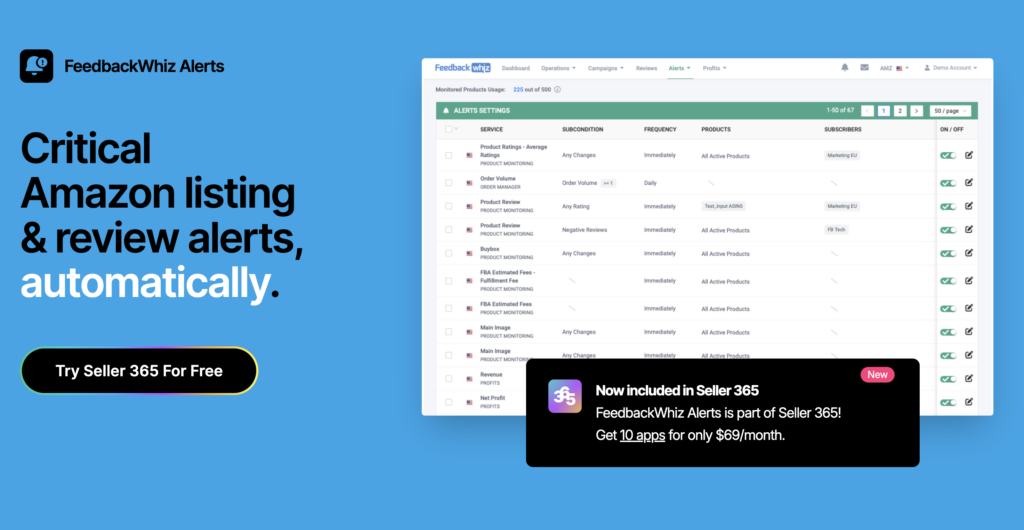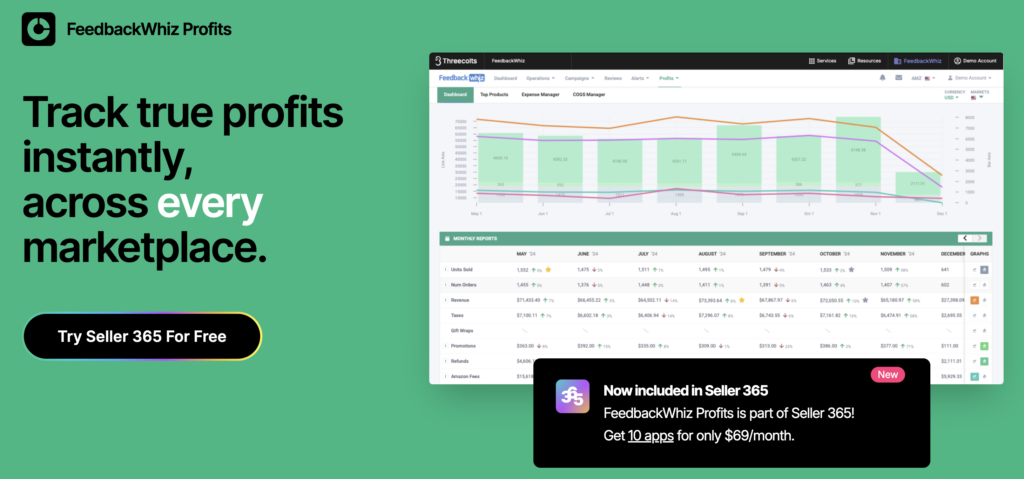- Blog
-
For Sellers
A complete guide to Walmart private label brands
As price loyalty overtakes brand loyalty, Walmart’s private labels are quietly reshaping how—and what—people buy.

Affordable private-label brands have become staples in major U.S. grocery chains, gaining popularity as shoppers face rising prices. Walmart has been at the forefront of this movement for over 30 years, particularly with its extensive grocery line. The retail giant currently offers around 30,000 products across 20 categories under its private label brands.
While branded products still maintain significant market share, studies show consumers across all income brackets now prioritize price over brand names. Interestingly, high-income households are leading the shift toward private-label brands as a money-saving strategy.
This makes selling private-label brands on Walmart a viable option for starting a business or expanding your current operations. Let’s explore how private labeling works and how you can sell them on the marketplace.
How private labeling works
Private labeling involves selling products manufactured by another company under your own brand name. This business approach lets you offer exclusive products, outperform competitors, and maintain control over pricing, branding, and marketing.
The process involves two key players: the manufacturer and the seller. The manufacturer ensures product quality and manages production costs, while the seller handles branding, marketing, targeting the right customers, and establishing profitable pricing models.
It’s worth noting that private-label goods differ from white-label products. White-label items aren’t customized for specific sellers but are mass-produced and sold to various retailers who then apply their own branding. This means different companies might sell identical white-label products under different brand names.
Benefits of private labeling
Selling private label products offers advantages for both you and your manufacturer:
- Unique, customized products: As a private label seller, you can offer products that even established brands don’t have. You can pursue innovative product ideas without worrying about what’s already on the market.
- Direct relationship with your manufacturer: Working directly with your manufacturer enables open communication and allows you to demand premium quality without intermediaries. You can set your own quality control standards to ensure your specifications are consistently met.
- Greater pricing control: Since private label manufacturers handle production costs while you establish your pricing model, you can collaborate to test various pricing strategies to maximize profit margins while staying competitive. This flexibility often leads to higher profits over time.
- Marketing freedom: Without ties to other companies, you have complete freedom to develop your own marketing strategies and campaigns. You aren’t bound by the sometimes rigid branding guidelines that national brands might use.
- Faster response to challenges: Private labelers can address issues like negative reviews, problematic product formulas, and supply chain disruptions more quickly. Major brands often move more slowly due to established protocols and regulations.
How to create a Walmart private-label product
Here’s how you can enter the retail giant’s private label sector:
Research thoroughly
Research is crucial when creating any privately branded product. Skipping this step could lead to poor execution or unreasonable pricing.
Safety should be your top priority, especially for food products. Walmart has specific food safety requirements for all brands, including private labels. Check these requirements and understand each rule before proceeding. Walmart provides comprehensive information for U.S.-produced and supplier-imported private-branded products.
If you’re on Walmart Seller Center, use Assortment Growth, Walmart’s research tool for finding in-demand product ideas. Focus on items with fewer sellers to minimize competition.
Finally, explore other retail stores to understand the market. If a product performs well on major marketplaces like Amazon, it will likely succeed on Walmart too.
Find a trustworthy manufacturer
Your next step is finding a reliable manufacturer. While a Google search will yield thousands of potential partners, you can save time using specialized research tools.
Alibaba is an excellent source for affordable private-label product manufacturers. Simply search for your desired product, and Alibaba will display relevant suppliers. These manufacturers are typically reputable, with third-party verifications and company certifications readily available.
Using Alibaba offers cost advantages since overseas suppliers generally charge less than U.S. manufacturers. However, language barriers might create communication challenges.
If you prefer U.S. manufacturers, try Thomas. This platform allows you to search for suppliers by product and location. For example, searching “private branded product manufacturer in [U.S. City]” will show all matching manufacturers, including their products and certifications.
Another valuable resource is the 3B Private Label Portal. Enter your product category in the search bar, and the portal will narrow your search and generate leads.
List your product on Walmart
Listing your product on Walmart resembles the Amazon listing process. Use popular keywords and provide complete product details, including brand, title, description, and unique features.
Include high-quality images. Consider hiring a professional product photographer if you lack the equipment or skills to capture compelling product images.
Choose a fulfillment method
Like Amazon, Walmart offers multiple fulfillment options: self-fulfillment, partnering with a third-party distributor, or using Walmart Fulfillment Services (WFS). With WFS, Walmart handles storage, packing, shipping, and returns for your products.
Launch your product
Once everything is ready, launch your private branded product on Walmart. Consider using Walmart Sponsored Product ads to target your ideal customers.
Monitoring your Walmart private label brand with ecommerce tools
After launching your private label brand, track its performance to stay competitive. Here are some valuable tools to consider:
FeedbackWhiz Alerts

FeedbackWhiz Alerts keeps you informed about critical changes to your Walmart listings and customer reviews. This monitoring tool sends notifications when customers leave reviews, allowing you to respond quickly to feedback and address any issues before they affect your reputation.
FeedbackWhiz Profits

Managing the financial performance of your Walmart private label products requires accurate tracking of revenue, costs, and profitability. FeedbackWhiz Profits provides comprehensive financial visibility across your entire Walmart catalog.
The platform automatically tracks all your marketplace fees, advertising costs, and product expenses to calculate true profitability at the SKU level. This granular view helps you identify which products deliver the highest margins and which might need pricing adjustments.
Seller 365

Both FeedbackWhiz Alerts and FeedbackWhiz Profits are part of Seller 365, a suite of 10 apps designed specifically for Amazon and Walmart sellers. This all-in-one solution provides everything from sourcing and inventory management to repricing and profit analysis, helping you streamline operations while expanding.
Jumpstart your success with private label Walmart products
The rising popularity of private label brands at Walmart creates a perfect opportunity for entrepreneurs and expanding businesses. The advantages are clear: you gain complete control over your product’s quality, pricing, and marketing while leveraging Walmart’s massive customer base and distribution network.
Creating a successful Walmart private label product requires thorough research, finding reliable manufacturing partners, and implementing effective monitoring tools. By addressing marketplace challenges quickly and delivering consistent quality, you can build a loyal customer base in no time.
Start your journey to private label success today. Try Seller 365 free for up to 14 days and discover how our toolkit can help you build, grow, and optimize with less effort and greater results.






















